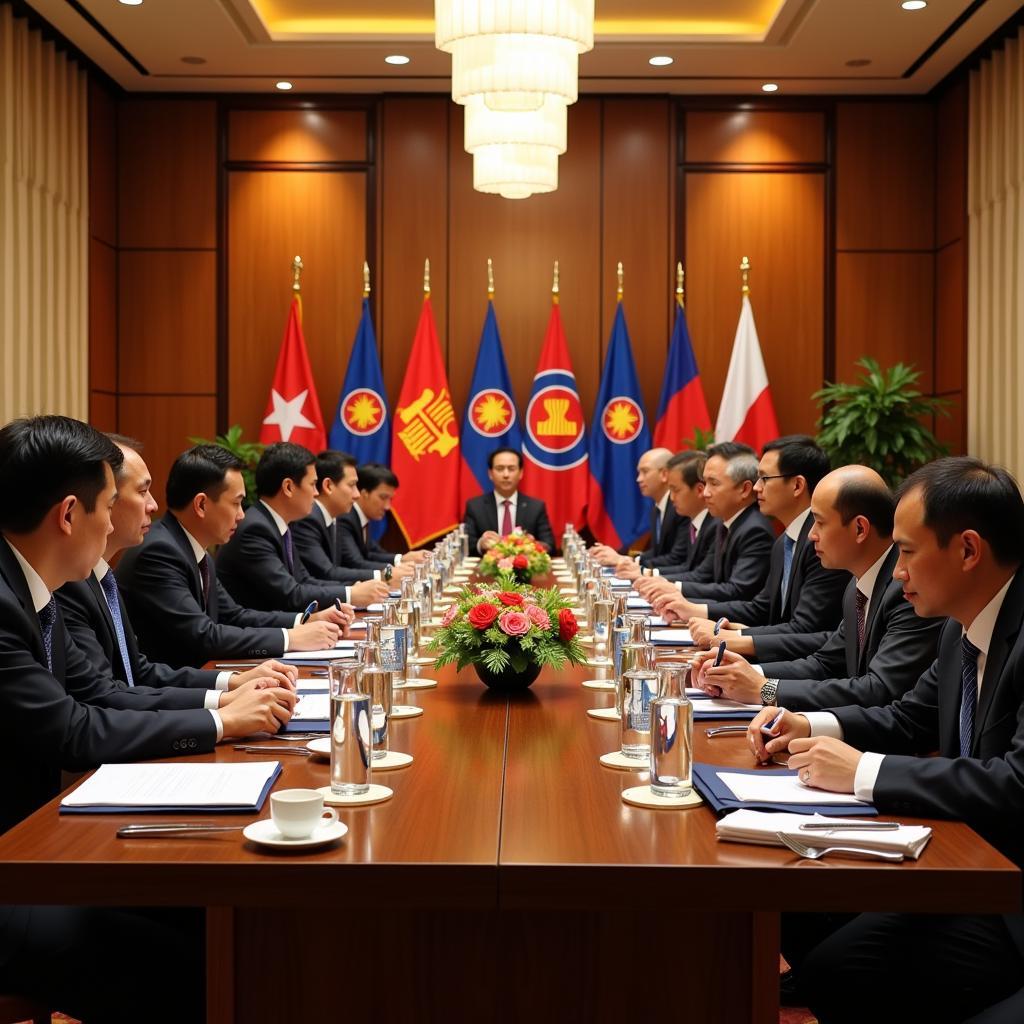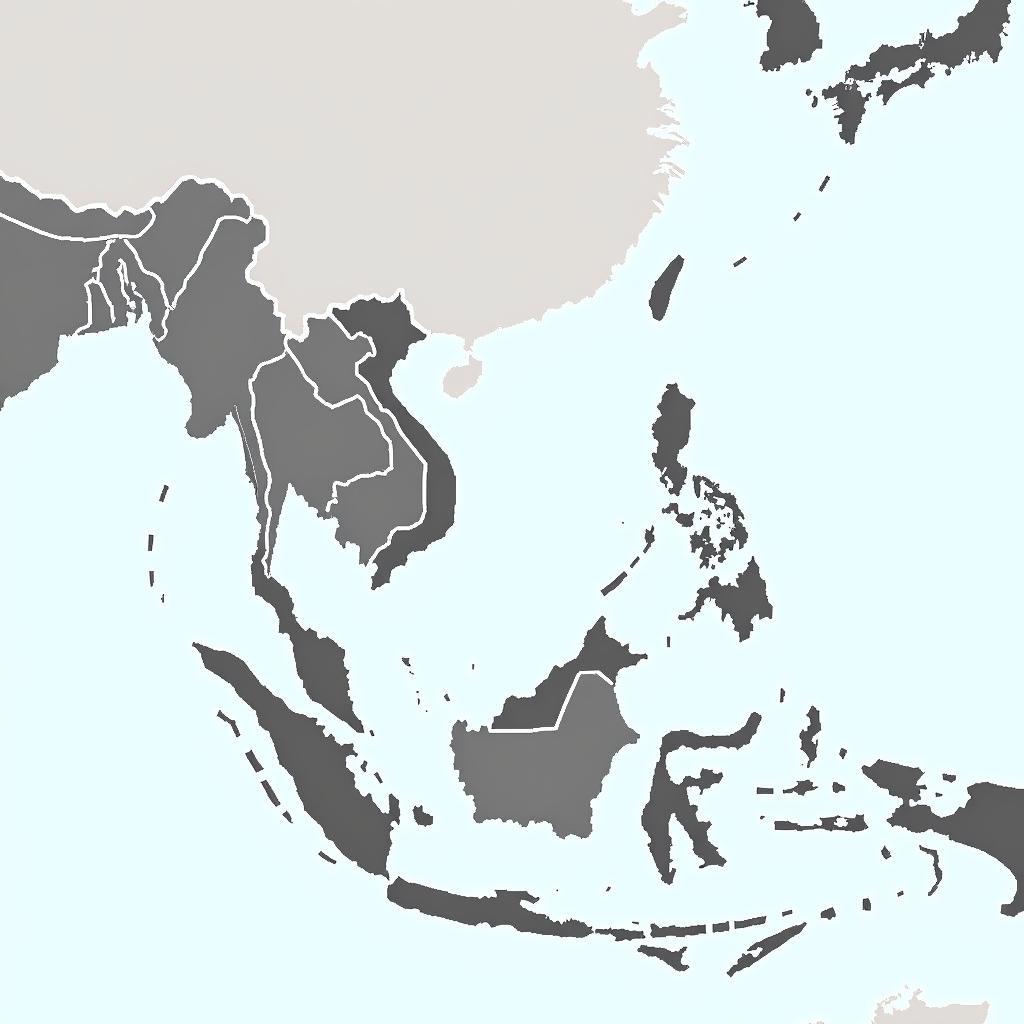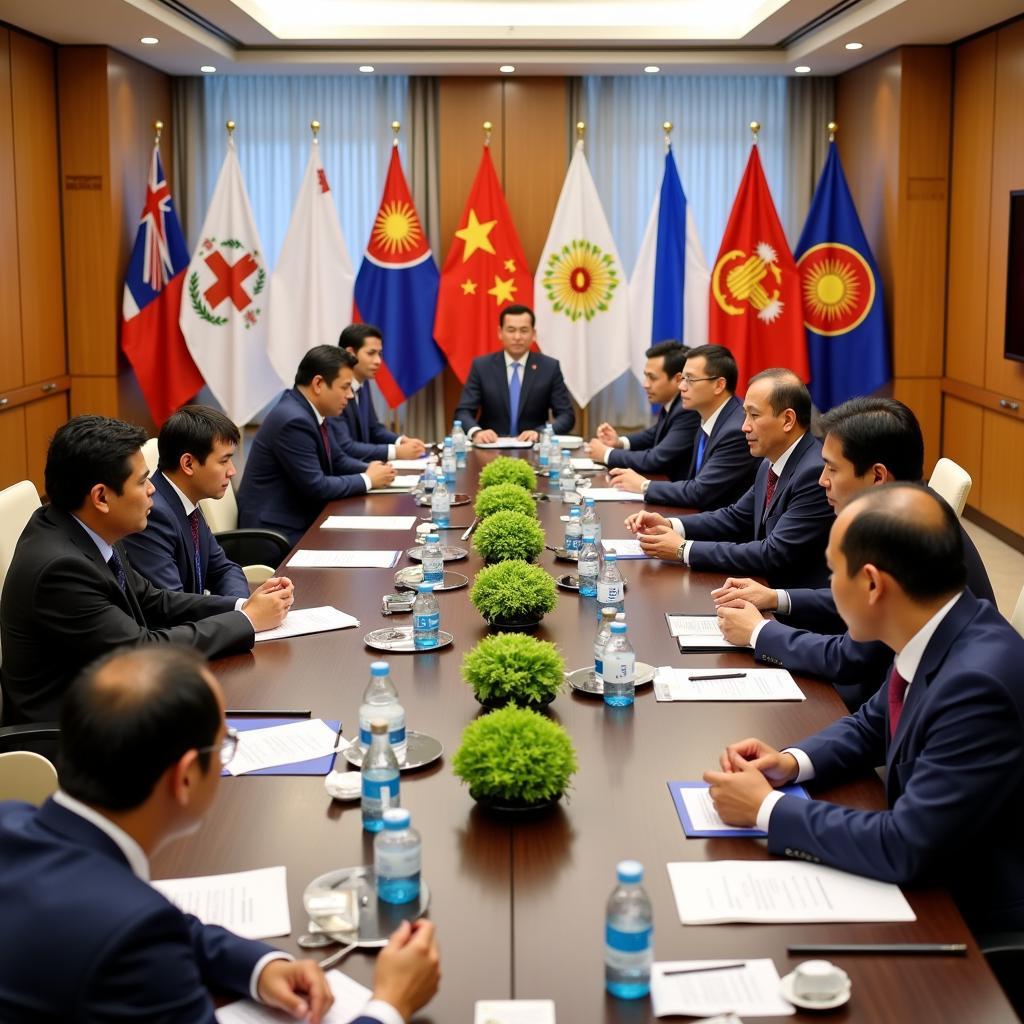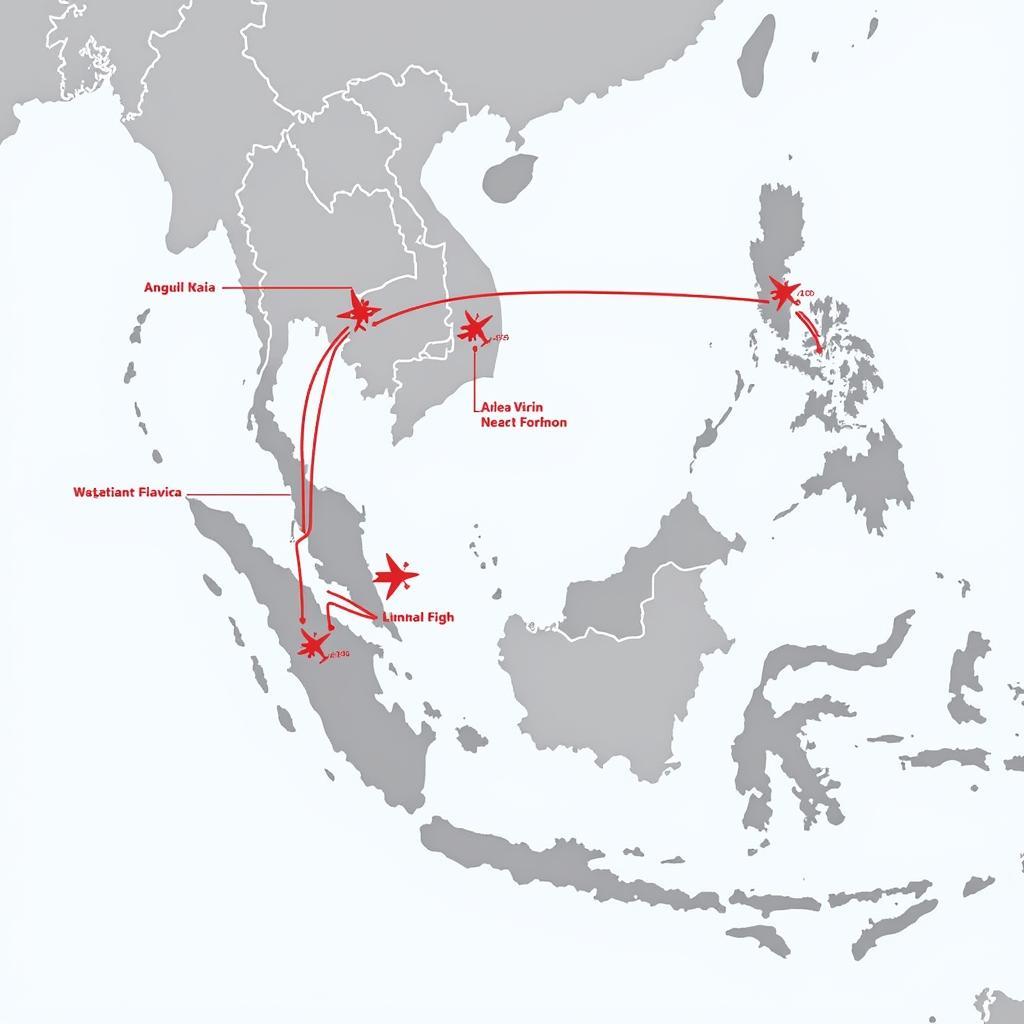The ASEAN position plays a crucial role in shaping the region’s political, economic, and social landscape. This article delves into the importance of the ASEAN position, its impact on various sectors, and how it contributes to the overall development and integration of Southeast Asia.
 ASEAN Summit Meeting
ASEAN Summit Meeting
What Does the ASEAN Position Entail?
The ASEAN position refers to the collective stance and unified voice of the Association of Southeast Asian Nations (ASEAN) on regional and global issues. It represents the shared interests, values, and aspirations of its ten member states: Brunei Darussalam, Cambodia, Indonesia, Laos, Malaysia, Myanmar, the Philippines, Singapore, Thailand, and Vietnam.
The ASEAN position is formulated through a consensus-based approach, ensuring that the perspectives and concerns of all member states are taken into consideration. This collaborative decision-making process is central to ASEAN’s identity and its ability to navigate complex geopolitical dynamics.
 ASEAN Economic Integration
ASEAN Economic Integration
The Significance of a Unified ASEAN Position
A united ASEAN position carries significant weight on the international stage. It amplifies the region’s influence in global affairs and strengthens its bargaining power in negotiations with external partners.
2020 asee annual conference and exposition
By presenting a common front, ASEAN can effectively advocate for its interests on issues such as trade, security, and climate change. A unified voice also enhances ASEAN’s credibility and reliability as a regional bloc, attracting foreign investment and fostering closer cooperation with dialogue partners.
Key Areas Impacted by the ASEAN Position
Economic Integration and Trade
The ASEAN position on economic matters is crucial for driving regional integration and promoting economic growth. The ASEAN Economic Community (AEC) Blueprint 2025, guided by the ASEAN position, outlines a roadmap for a single market and production base, facilitating the free flow of goods, services, investment, and skilled labor.
Political and Security Cooperation
In an increasingly complex geopolitical landscape, a coherent ASEAN position on political and security issues is paramount. The ASEAN Charter, adopted in 2007, underscores the bloc’s commitment to peaceful settlement of disputes, non-interference in internal affairs, and regional stability.
 ASEAN Regional Forum
ASEAN Regional Forum
Socio-Cultural Cooperation
Recognizing the importance of people-to-people connectivity, the ASEAN position also encompasses socio-cultural cooperation. Initiatives promoting cultural exchange, education collaboration, and social development programs help bridge cultural divides and foster a sense of shared identity among ASEAN citizens.
ase putting positions in fractions
Challenges and Opportunities for the ASEAN Position
Maintaining a unified ASEAN position can be challenging, given the diverse interests and priorities of member states. However, ASEAN has demonstrated resilience and adaptability in navigating these complexities. By upholding the principles of consensus and consultation, ASEAN can continue to forge a common path forward.
Conclusion
The ASEAN position is a testament to the power of regional cooperation and a key driver of Southeast Asia’s growth and development. As ASEAN continues to navigate a rapidly changing global environment, its ability to maintain a unified voice will be critical in advancing its collective interests and shaping a prosperous and secure future for the region.
Need assistance or have questions about ASEAN? Contact us!
- Phone: 0369020373
- Email: aseanmediadirectory@gmail.com
- Address: Thôn Ngọc Liễn, Hiệp Hòa, Bắc Giang, Việt Nam
Our dedicated customer support team is available 24/7 to assist you.

